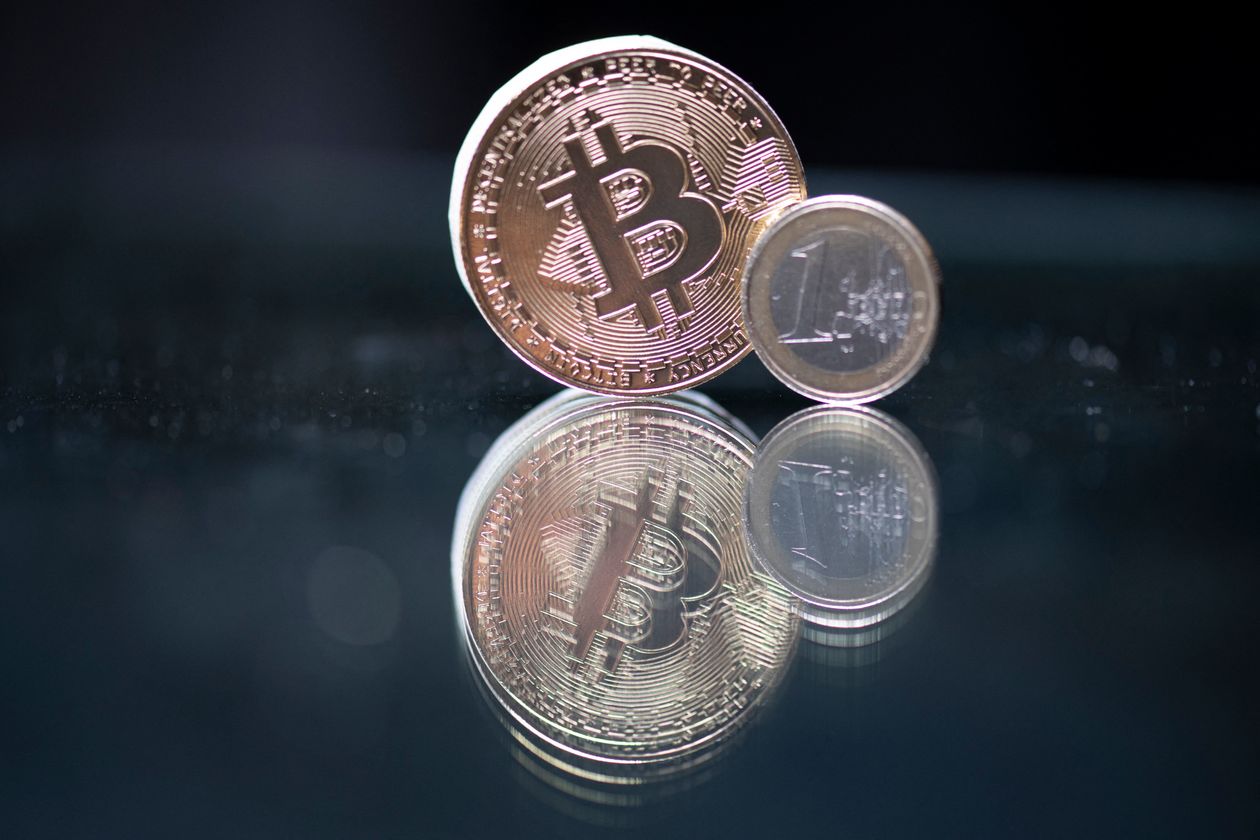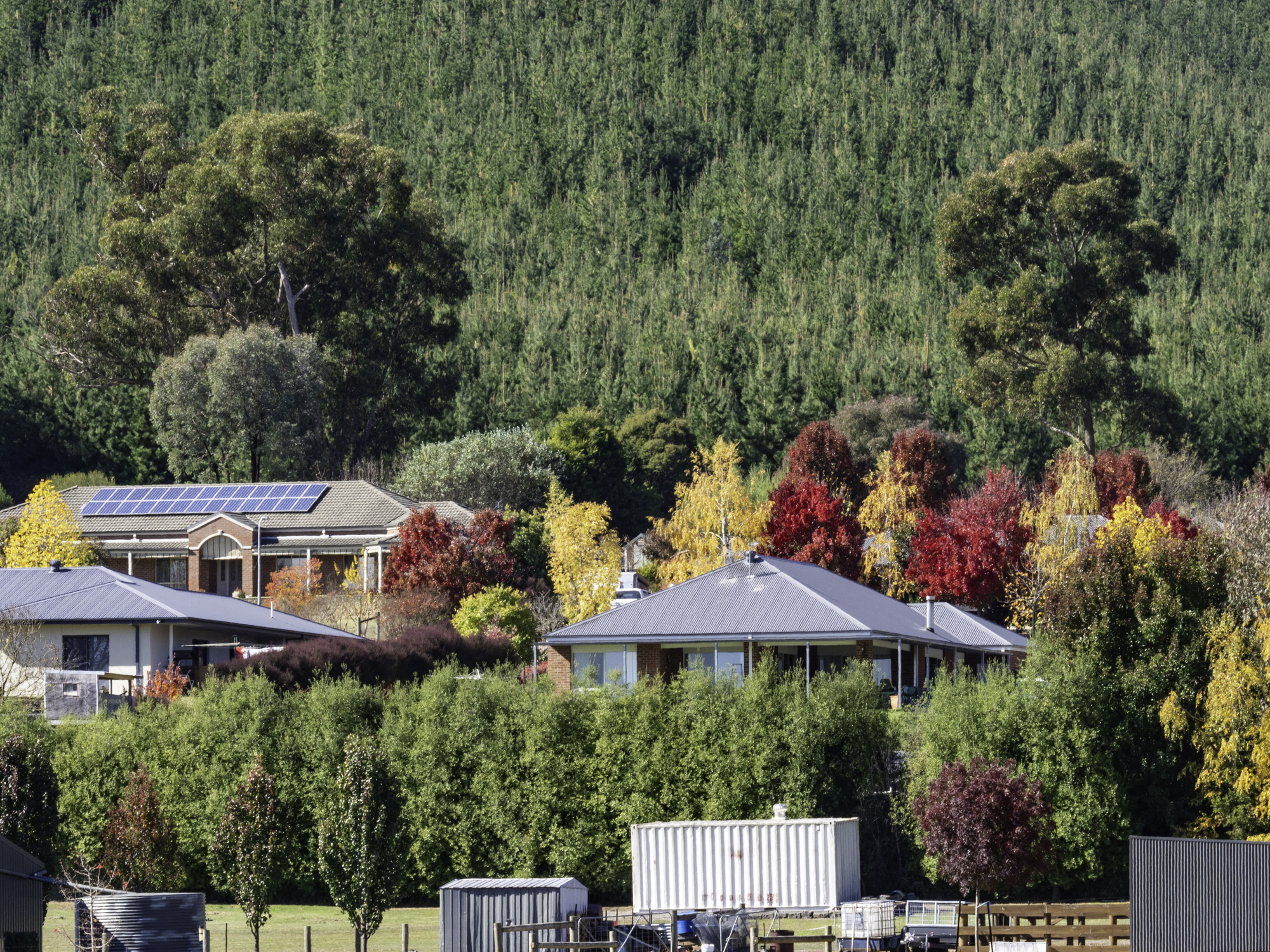Bitcoin Price Drops After China Intensifies Crypto Crackdown
Authorities order Ant Group and state banks to root out cryptocurrency-related activities,
The price of bitcoin and other cryptocurrencies slid Monday after China’s central bank ordered the country’s largest banks and payment processors to take a more active role in curbing cryptocurrency trading and related activities.
The People’s Bank of China on Monday said it summoned representatives of multiple institutions—including state-owned commercial banks and Ant Group Co.’s Alipay—and told them to “strictly implement” recent notices and guidelines from authorities on curbing risks tied to bitcoin and cryptocurrency fundraising activities. It was the latest sign that Beijing is intensifying its crackdown on unregulated virtual currencies.
Bitcoin slipped to $32,622, down 9% from Friday, according to CoinDesk. That marked bitcoin’s lowest price at 5 p.m. ET since late January.
Ethereum, the second-biggest cryptocurrency by market value according to trading platform Kraken, lost 14% to $1,941. Dogecoin, which started as a joke in 2013 before setting the internet abuzz and shooting up in price this year, 27% to about 21 cents in its eighth consecutive daily decline.
The financial firms were also instructed to go through their systems to investigate and identify customers with accounts at virtual-currency exchanges or that trade cryptocurrencies in the over-the-counter market. In such cases, the institutions have to cut off the accounts’ ability to send or receive money for transactions, the central bank said.
Chinese authorities have stepped up a nationwide campaign against virtual currencies in recent weeks, after a powerful superregulator pledged to crack down on cryptocurrency trading and mining in the country.
The regulatory warnings followed a spike in the price of bitcoin, which traded near $65,000 in mid-April, spurred on by celebrity advocates including Tesla Inc. Chief Executive Elon Musk. It has since lost close to half its value.
Among the factors weighing on bitcoin and its peers are the prospect of greater regulatory oversight of crypto trading in the U.S. and renewed efforts by Chinese authorities to restrain the production of bitcoin by power-hungry computers.
China several years ago imposed bans on domestic cryptocurrency exchanges and digital-currency fundraisings known as initial coin offerings. Authorities also previously instructed payment providers and banks to stop providing virtual-currency trading and related services, and ordered the closing of mines.
Despite those efforts, China has remained a hotbed for cryptocurrency mining.
Up to three-quarters of the world’s supply of bitcoin has been produced in China, but the mining process devours electricity—conflicting with the government’s climate goals.
People in China have also continued to trade bitcoin and other digital currencies via peer-to-peer transactions that involve direct money transfers between accounts.
Some cryptocurrency trading platforms that operate offshore have been facilitating trades between people who want to buy bitcoin with China’s domestic currency, the yuan. In such instances, buyers have used accounts at banks or digital-payments providers to transfer money to people selling cryptocurrencies, often without disclosing the purpose of the transfers.
The PBOC on Monday warned of the risks to economic and financial stability created by virtual currencies, and the potential for the assets to be used for illegal activities. Chinese police recently arrested more than a thousand people who were suspected of using cryptocurrencies to launder ill-gotten funds.
Alipay said it would intensify efforts to monitor and investigate its accounts for cryptocurrency-related transactions, and block or remove offending users. The popular digital payments platform is used by more than one billion people in China and more than 80 million merchants.
Alipay also plans to use risk algorithm models to help detect abnormal transactions, flag suspicious activities, and restrict certain accounts from receiving money. It added that merchants that have engaged in virtual currency transactions would be blacklisted and banished from its platform.
“We reiterate that Alipay does not conduct or participate in any business activity related to virtual currencies,” its statement said.
Five banks, including Industrial & Commercial Bank of China Ltd., Agricultural Bank of China Ltd., China Construction Bank Corp., Postal Savings Bank of China Co. Ltd., and Industrial Bank Ltd., said in separate statements that they prohibit the use of their accounts for virtual currency transactions.
They pledged to promptly put a stop to such transactions, close bank accounts and report signs of such activities to the authorities. They also called on members of the public to report virtual currency-related transactions to the banks.
Chen Shujin, an analyst at Jefferies, said the central bank’s directive to the financial firms is aimed at cutting off payment mechanisms used by Chinese individuals and businesses involved in cryptocurrency trading and mining. She said peer-to-peer transactions, however, are difficult to track and identify because they tend to be small-scale and anonymous.
“This will make it harder [for people to trade], but it won’t be able to completely shut down this type of transactions,” Ms. Chen said. She added that some individuals could try to get around the rules by remitting funds overseas and conducting cryptocurrency transactions offshore in other currencies.
Corrections & Amplifications
Chinese police recently arrested more than a thousand people who were suspected of using cryptocurrencies to launder ill-gotten funds. An earlier version of this article incorrectly said police made thousands of arrests. It also incorrectly had reporter Chong Koh Ping’s byline as Chong Koh. (Corrected on June 21.)
Reprinted by permission of The Wall Street Journal, Copyright 2021 Dow Jones & Company. Inc. All Rights Reserved Worldwide. Original date of publication: June 21, 2021.
 Copyright 2020, Dow Jones & Company, Inc. All Rights Reserved Worldwide. LEARN MORE
Copyright 2020, Dow Jones & Company, Inc. All Rights Reserved Worldwide. LEARN MORE
This stylish family home combines a classic palette and finishes with a flexible floorplan
Just 55 minutes from Sydney, make this your creative getaway located in the majestic Hawkesbury region.
Continued stagflation and cost of living pressures are causing couples to think twice about starting a family, new data has revealed, with long term impacts expected
Australia is in the midst of a ‘baby recession’ with preliminary estimates showing the number of births in 2023 fell by more than four percent to the lowest level since 2006, according to KPMG. The consultancy firm says this reflects the impact of cost-of-living pressures on the feasibility of younger Australians starting a family.
KPMG estimates that 289,100 babies were born in 2023. This compares to 300,684 babies in 2022 and 309,996 in 2021, according to the Australian Bureau of Statistics (ABS). KPMG urban economist Terry Rawnsley said weak economic growth often leads to a reduced number of births. In 2023, ABS data shows gross domestic product (GDP) fell to 1.5 percent. Despite the population growing by 2.5 percent in 2023, GDP on a per capita basis went into negative territory, down one percent over the 12 months.
“Birth rates provide insight into long-term population growth as well as the current confidence of Australian families,” said Mr Rawnsley. “We haven’t seen such a sharp drop in births in Australia since the period of economic stagflation in the 1970s, which coincided with the initial widespread adoption of the contraceptive pill.”
Mr Rawnsley said many Australian couples delayed starting a family while the pandemic played out in 2020. The number of births fell from 305,832 in 2019 to 294,369 in 2020. Then in 2021, strong employment and vast amounts of stimulus money, along with high household savings due to lockdowns, gave couples better financial means to have a baby. This led to a rebound in births.
However, the re-opening of the global economy in 2022 led to soaring inflation. By the start of 2023, the Australian consumer price index (CPI) had risen to its highest level since 1990 at 7.8 percent per annum. By that stage, the Reserve Bank had already commenced an aggressive rate-hiking strategy to fight inflation and had raised the cash rate every month between May and December 2022.
Five more rate hikes during 2023 put further pressure on couples with mortgages and put the brakes on family formation. “This combination of the pandemic and rapid economic changes explains the spike and subsequent sharp decline in birth rates we have observed over the past four years,” Mr Rawnsley said.
The impact of high costs of living on couples’ decision to have a baby is highlighted in births data for the capital cities. KPMG estimates there were 60,860 births in Sydney in 2023, down 8.6 percent from 2019. There were 56,270 births in Melbourne, down 7.3 percent. In Perth, there were 25,020 births, down 6 percent, while in Brisbane there were 30,250 births, down 4.3 percent. Canberra was the only capital city where there was no fall in the number of births in 2023 compared to 2019.
“CPI growth in Canberra has been slightly subdued compared to that in other major cities, and the economic outlook has remained strong,” Mr Rawnsley said. “This means families have not been hurting as much as those in other capital cities, and in turn, we’ve seen a stabilisation of births in the ACT.”
This stylish family home combines a classic palette and finishes with a flexible floorplan
Just 55 minutes from Sydney, make this your creative getaway located in the majestic Hawkesbury region.






















